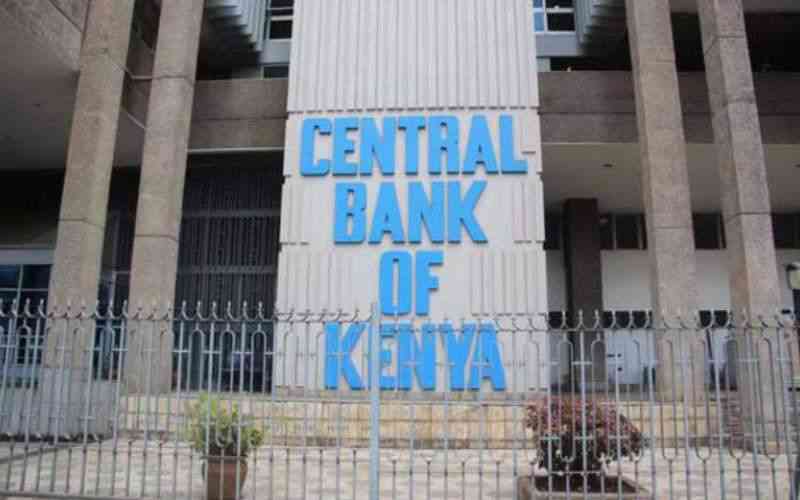Thailand Travel Stimulus Sparks National Controversy As Lawmakers Demand Urgent Clarification On 'Half-Half Thai Travel' Delays And Platform Rejection
Wednesday, July 16, 2025

Thailand’s Tourism Committee is urgently demanding an explanation from the Ministry of Tourism and Sports over the chaotic rollout of the “Half-Half Thai Travel” program, citing unresolved delays, system failures, and growing discontent among hotel operators and travelers. Lawmakers argue that the program’s poor execution—caused by the government’s decision to replace a previously successful app with an untested system—has not only disrupted the recovery of domestic tourism but also shaken public trust in state-run subsidy initiatives.
Thailand’s Tourism Senate Committee has urgently called on the Ministry of Tourism and Sports to provide clear explanations and full transparency over persistent issues plaguing the newly launched “Half-Half Thai Travel” domestic tourism initiative, which has been marred by operational difficulties since its rollout.
A high-level meeting was held on July 15 to address mounting concerns surrounding the program, which was officially rolled out on July 1, 2025. Designed to encourage local tourism and economic activity, the initiative provides Thai citizens with government-funded subsidies covering a significant portion of travel expenses, including accommodations.
Despite its strong potential to boost local tourism, the program has encountered operational disruptions and public frustration due to delays in implementation. The committee emphasized that these issues have remained unresolved for nearly two weeks, raising concerns about execution and oversight.
One of the most pressing issues raised during the discussion was the decision not to revive the widely-used “Paotang” mobile application, which had previously played a key role in the success of a similar domestic tourism program, “We Travel Together.” Stakeholders questioned why a proven platform was bypassed in favor of a new, unfamiliar system that has not delivered reliable results.
The replacement of the previous system with a newly contracted private company has resulted in extensive delays, technical problems, and confusion among users. The shift away from established tools is being scrutinized as a possible reason for the setbacks, prompting lawmakers to demand greater accountability and a detailed explanation for the policy shift.
The Senate Committee stressed the need for swift action to restore public confidence and ensure that the program functions efficiently. There were calls for the Ministry to provide a full status update and timeline for resolving the ongoing difficulties so that the scheme can effectively serve its intended purpose—revitalizing Thailand’s domestic tourism sector during a critical recovery period.
As tourism continues to be a vital pillar of the national economy, the failure of such a key initiative could hinder efforts to stimulate spending and support local businesses across the country. Lawmakers have urged a reassessment of the program’s operational approach and a potential return to tested platforms to avoid further disruptions.
Concerns are mounting over the troubled rollout of Thailand’s new “Half-Half Thai Travel” initiative, with officials questioning key decisions in the program’s implementation. The Senate Tourism Committee has pointed to several missteps, including the government’s decision to abandon the previously successful “Paotang” application, which had played a vital role in earlier travel stimulus programs.
The committee raised critical questions about why a trusted platform that had proven effective in the past was not reintroduced. Instead, a new, untested company was contracted to operate the current scheme—leading to widespread system errors, delays, and administrative bottlenecks that are affecting the tourism sector nationwide.
Hoteliers have been particularly impacted by the program’s poor execution. According to recent data, many hotel owners remain hesitant to participate in the new scheme. A major concern is the lack of resolution over unpaid reimbursements from the prior “We Travel Together” program, which has led to skepticism about the reliability of the current rollout.
In addition to financial worries, hotel operators have also cited fears related to tax liabilities and regulatory ambiguity as reasons for holding back from registering. The uncertainty surrounding back-end processes and unclear guidance from authorities have only intensified industry frustration.
Further compounding the problem is the project’s cumbersome registration system. The committee criticized the lack of a streamlined application process, noting that the digital interface for data entry and form completion has been unnecessarily complicated. This has resulted in significant confusion for both service providers and travelers attempting to register.
Moreover, officials highlighted the absence of an effective public communication strategy. With minimal promotion and little public awareness of how the program works or who qualifies, many potential participants have been left in the dark. This lack of visibility, coupled with unresolved technical challenges, threatens to undermine the campaign’s goal of boosting domestic travel.
The committee also questioned whether the current direction of the project aligns with the broader national tourism policy. The implementation approach, they noted, fails to meet the standard set by previous successful initiatives and lacks the efficiency and public trust needed to revitalize travel spending.
Due to the urgency of the matter, the committee is now seeking immediate clarification from the Ministry of Tourism and Sports. A formal request has been made for senior officials to appear and explain the rationale behind the current management choices, as well as outline the steps being taken to resolve the ongoing issues.
The delays, which have now dragged on for more than two weeks, are threatening to stall momentum in Thailand’s domestic tourism recovery. With thousands of tourism operators depending on these stimulus packages to survive, the consequences of continued disruption could be far-reaching for local economies and travel-dependent communities.
Ultimately, the committee is urging a return to proven systems and better coordination between government departments, technology partners, and tourism stakeholders. Without swift action and greater transparency, the program risks falling short of its objectives—leaving travelers confused, businesses unsupported, and the tourism sector in a state of uncertainty.
Recommended Articles
Completely Average Games That Blow Their Competitors Out Of The Water In One Area

Sometimes you only need to do one thing really well to stand out.
Microsoft abruptly stops selling movies and TV shows on PC and Xbox, but past purchases will remain available | PC Gamer

Fans of Microsoft's movies and TV shop will need to purchase their content elsewhere now.
NBA Summer League: Rockets 104, Timberwolves 101 - Summer League Was Stupid Anyway

Without any of their five typical Summer League starters, the Wolves built and then blew a 17 point lead to throw away t...
Nuggets Notes: Adelman, Johnson, Braun, Murray, C. Jones | Hoops Rumors

An improved roster means David Adelman will be expected to win big in his first full season as Nuggets head coach.+
Hornets 'Super Excited' Offseason Addition Talks 2025-26 Season

Ever since the Charlotte Hornets hired Jeff Peterson as executive vice president of basketball operations, culture has b...
You may also like...
Changing Cultures: How Africa Sips It's Alcohol

Discover which countries sip the most alcohol in Africa, and the health impacts this could have on the long run.
SEC Confirms Ripple's Victory: Legal Battle Concludes as Fundraising Greenlit!

The U.S. Securities and Exchange Commission has concluded its lengthy legal battle with Ripple, issuing a critical waive...
Legal Firestorm: South Korean Ex-President's Wife Targeted in High-Stakes Arrest Warrant

South Korean investigators have secured an arrest warrant for Kim Keon Hee, the wife of jailed former President Yoon Suk...
ASEAN-Brokered Breakthrough: Thailand & Cambodia Edge Closer to Historic Border Deal

Thailand and Cambodia engaged in high-level talks in Malaysia, initiated by ASEAN, to address escalating border tensions...
Kenya's Central Bank Slashes Key Rate to 9.5%: Economic Impact Looms

Kenya's Central Bank has lowered its benchmark rate to 9.50 percent, continuing its policy to stimulate economic activit...
Is Humanity Trading Connection for AI Comfort? A Deep Dive

As individuals increasingly turn to AI for emotional support, questions arise about the erosion of human connection. Thi...
Local Tragedy: Hotel Under Construction Collapses in Edo, Claims Owner's Life

A hotel under construction in Uromi, Benin City, collapsed, tragically killing its owner, Andrew Isesere. Eyewitnesses a...
Naked Gun Remake Delivers Laughs, Neeson & Anderson's Chemistry Wows!

This season's film releases offer a diverse lineup, highlighted by the highly successful "The Naked Gun" remake, starrin...